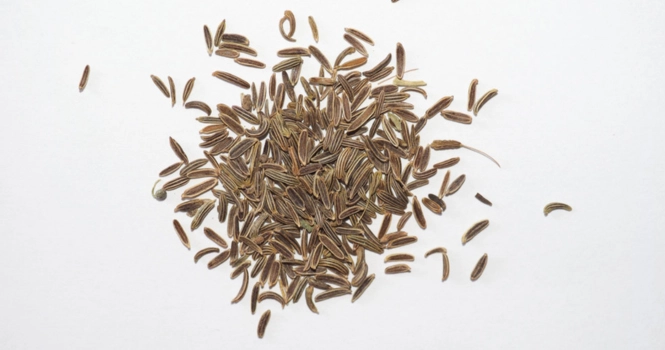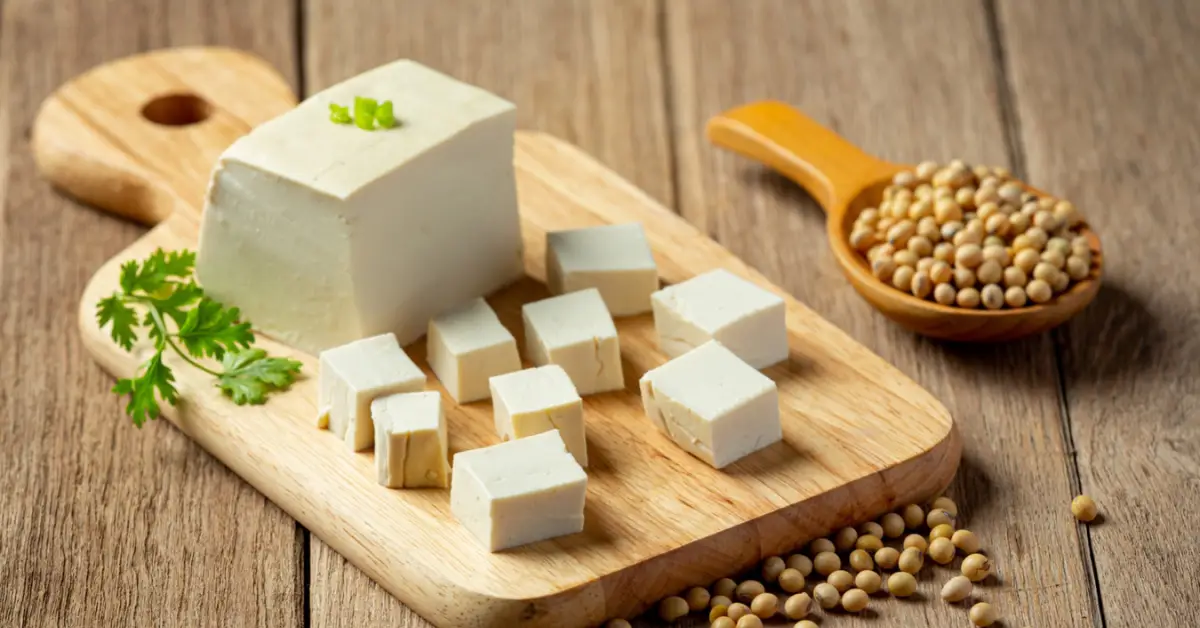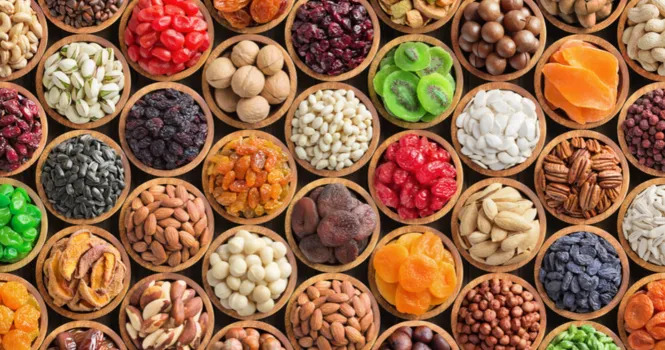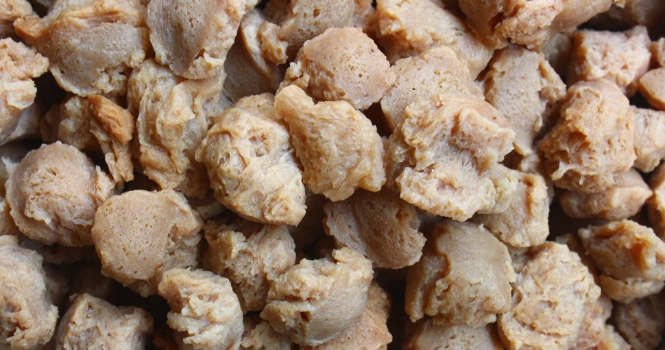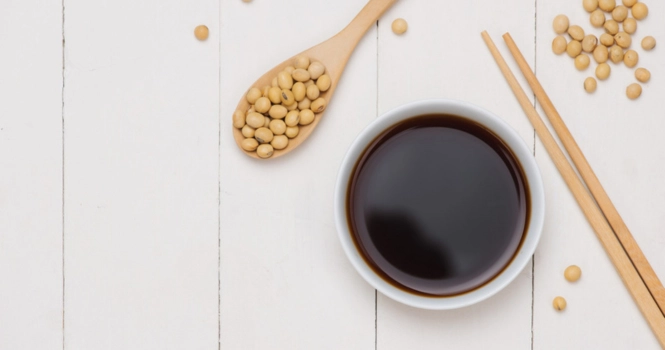Black Coffee for Weight Loss
What is Coffee?
Coffee is a brewed drink prepared from roasted coffee beans, which are the seeds of berries from certain Coffea species. The Coffea plant is native to tropical regions of Africa, specifically in Sudan and Ethiopia.
Once ripe, coffee berries are picked, processed, and dried to yield the seeds inside.
Coffee seeds, often mistakenly called beans due to their bean-like shape, are roasted to varying degrees, depending on the desired flavor.
Roasting causes the beans to change in taste and to produce the complex flavor of coffee. They can then be ground and brewed with near-boiling water to produce the beverage known as coffee.
There are 2 Major Coffee Species cultivated around the world.
- Arabica Coffee (Superior in Flavor)
- Robusta Coffee ( Yields more beans)
What is Black Coffee?
When steam or hot water is passed through the ground coffee beans, then the liquid which is extracted is the Black Coffee in its purest form, without addition of milk, cream or sugar.
This coffee provides the highest amount of caffeine.
Many coffee enthusiasts prefer black coffee because it allows them to better appreciate the unique flavors and characteristics of different coffee beans, such as their origin, variety, and the specific roasting and brewing methods used.
Nutritional Facts
Black coffee is a very low-calorie beverage, primarily because it’s consumed without any added ingredients such as sugar, milk, or cream. The exact nutritional content can vary depending on factors like the type of coffee bean and brewing method, but here’s a general idea of what you can expect in an 8-ounce (240-milliliter) cup of black coffee:
- Calories: 2-5
- Caffeine: 95 milligrams
- Protein: 0.3 grams
- Fat: 0 grams
- Carbohydrates: 0 grams
- Fiber: 0 grams
- Sugars: 0 grams
In terms of micronutrients, coffee contains small amounts of several vitamins and minerals, including,
- B2 (riboflavin)
- B3 (niacin)
- B5 (pantothenic acid)
- Manganese
- Potassium.
Perhaps one of the most significant aspects of coffee’s nutrition profile is its high antioxidant content.
Coffee is rich in polyphenols, a type of antioxidant thought to protect against a variety of diseases.
Chlorogenic acid, one of the major antioxidants in coffee, is believed to have potential health benefits including reducing inflammation and controlling blood sugar levels.
However, it’s important to note that while black coffee itself is low in calories and sugar, additions like milk, cream, and sugar can significantly increase the caloric content and potentially offset some of these health benefits.
It’s also worth considering that caffeine, while it can improve alertness and concentration, can have negative effects when consumed in excess, such as causing jitteriness, disrupting sleep, or increasing heart rate.
How Black Coffee Helps in Weight Loss?
Black coffee may aid in weight loss in several ways:
1. Boosts Metabolism:
Coffee, particularly due to its caffeine content, can stimulate metabolic activity. By increasing your metabolic rate, your body is able to burn more calories throughout the day, which can contribute to weight loss.
2. Enhances Physical Performance:
Caffeine is known to stimulate the nervous system, which sends signals to the fat cells to break down fat. It also increases adrenaline levels in the blood, preparing your body for intense physical exertion. This is why a cup of coffee before a workout could improve performance and encourage more calorie burning.
3. Suppresses Appetite:
Some studies suggest that drinking coffee may help reduce feelings of hunger for a short time, meaning you might eat less and not gain extra weight. However, research on this is mixed and more studies are needed to confirm these effects.
4. Lower Calorie Option:
Black coffee is low in calories, provided you don’t add sugar, cream, or other high-calorie ingredients. This makes it a better choice than higher-calorie beverages like soda, juice, or sweetened coffee drinks when you’re trying to manage your calorie intake.
5. Aids in Digestion:
Coffee is a diuretic, meaning it helps to cleanse the system of waste via increased urination. This process may help to lose some water weight, but it’s important to stay hydrated if you’re consuming coffee frequently.
Benefits on Empty Stomach
Drinking black coffee on an empty stomach can have both potential benefits and drawbacks.
Potential benefits include:
1. Improved cognitive function:
Caffeine is known to block an inhibitory neurotransmitter in the brain called adenosine. When this happens, the amount of other neurotransmitters like norepinephrine and dopamine increases, leading to enhanced firing of neurons. This can lead to improved mood, energy levels, reaction times, and general cognitive function.
2. Enhanced metabolism and fat burning:
As previously mentioned, caffeine can boost your metabolic rate and increase fat burning, which can be beneficial for weight management. Some people find that having a cup of coffee before a morning workout helps them perform better.
3. Antioxidant boost:
Coffee is rich in antioxidants like chlorogenic acid and melanoidins. Consuming a cup of black coffee on an empty stomach may ensure that these beneficial compounds are readily absorbed.
Drawbacks on Empty Stomach
However, drinking coffee on an empty stomach can also have drawbacks and is not suitable for everyone:
1. Acid reflux:
Coffee is acidic and consuming it on an empty stomach can lead to gastric discomfort or exacerbate acid reflux and heartburn.
2. Stomach ulcers:
Individuals with stomach ulcers are often advised to avoid coffee, as it can worsen symptoms.
3. Disrupted sleep:
If consumed later in the day, coffee can interfere with sleep due to its caffeine content.
4. Anxiety:
Excessive coffee consumption can lead to jitteriness and increased heart rate, which can be amplified if consumed on an empty stomach.
Overall, the effects of drinking coffee on an empty stomach vary from person to person, and it’s important to listen to your body.
If you experience discomfort or other negative effects, it’s a good idea to have something to eat before your coffee or decrease your overall coffee consumption. As with all things, moderation is key.
Benefits for Skin
Black coffee may provide several potential benefits for the skin:
1. Antioxidant Properties:
Coffee is rich in antioxidants, which can help protect the skin against oxidative damage and environmental stressors like pollution and UV rays. Antioxidants may also help reduce signs of aging, like wrinkles and fine lines.
2. Reducing Inflammation:
The polyphenols and other anti-inflammatory compounds in coffee may help reduce inflammation and redness in the skin.
3. Exfoliation:
Ground coffee can be used as a natural exfoliant to remove dead skin cells and reveal fresh, radiant skin. This is why coffee grounds are often found in skincare scrubs.
4. Reducing Cellulite:
There is some evidence that the caffeine in coffee can dehydrate fatty cells. This can cause the cellulite to appear reduced, at least temporarily.
5. Improved Circulation:
The caffeine in coffee is a vasoconstrictor, which means it improves blood circulation. This can lead to healthier and more vibrant skin.
Remember that while these benefits are possible, they are not guaranteed. The effect of coffee on the skin will vary depending on your individual skin type and condition.
It’s also important to note that drinking coffee in moderation is key as excessive caffeine consumption can have negative effects, including potential dehydration of the skin.
It’s always a good idea to discuss new skincare treatments or significant dietary changes with a healthcare professional or dermatologist.
Benefits for Liver
Several studies suggest that coffee consumption may provide some benefits for liver health, although more research is needed to fully understand these relationships:
1. Reduced risk of liver disease:
Several observational studies suggest that regular coffee consumption may be associated with a lower risk of chronic liver diseases, including cirrhosis (scarring of the liver) and liver cancer. The exact mechanisms are not entirely clear but may be linked to coffee’s anti-inflammatory and antioxidant properties.
2. Protection against alcohol-related cirrhosis:
There’s evidence to suggest that coffee consumption could help protect against alcoholic cirrhosis. A review of multiple studies found that an increase in two cups of coffee per day was associated with a 50% lower risk of cirrhosis, particularly alcoholic cirrhosis.
3. Reduced liver enzyme levels:
Higher levels of certain liver enzymes can be an indicator of liver damage and inflammation. Some research suggests that coffee consumption may be linked with more normal liver enzyme levels.
4. Potential benefits for individuals with chronic liver disease:
Some research suggests that coffee consumption may slow disease progression in individuals with chronic liver disease and could potentially improve response to treatment.
However, it’s important to note that while coffee can be part of a healthy lifestyle, it’s not a cure-all or replacement for a balanced diet and regular medical checkups.
Excessive caffeine intake can have negative side effects, and it’s important to consume coffee in moderation. If you have concerns about your liver health, you should consult your doctor.
Benefits for Diabetes
Several studies suggest that drinking coffee, including black coffee, may be associated with a reduced risk of developing type 2 diabetes, although more research is needed to fully understand these relationships:
1. Lower risk of type 2 diabetes:
A number of epidemiological studies have found that drinking coffee is associated with a lower risk of developing type 2 diabetes. It’s not entirely clear why this is the case, but it may be due to the antioxidants in coffee, which can help improve insulin sensitivity and reduce inflammation.
2. Improved glucose metabolism:
Coffee is high in antioxidants and other compounds that may help improve the body’s ability to metabolize glucose, potentially reducing the risk of developing type 2 diabetes.
3. Reduction in insulin resistance:
The compounds in coffee may also help reduce insulin resistance, a condition that impairs the body’s ability to use insulin effectively and can lead to the development of type 2 diabetes.
However, it’s important to keep in mind that while coffee itself may have these potential benefits, adding sugar, cream, or other high-calorie ingredients to coffee can negate these benefits and can lead to weight gain and higher blood sugar levels.
Additionally, it’s worth noting that the effects of coffee on blood sugar control in people who already have diabetes are mixed, and coffee can sometimes impair short-term carbohydrate metabolism and increase blood sugar levels.
As always, if you have diabetes or are at risk for developing the disease, it’s best to discuss any changes to your diet or lifestyle with your doctor.
Benefits of Black Coffee Sexually
While there aren’t specific studies focusing on the effects of black coffee on sexual health, there are a few ways in which coffee’s main active ingredient, caffeine, may have indirect effects:
1. Improved Physical Stamina:
As a stimulant, caffeine increases energy levels and can potentially improve stamina and endurance during sexual activities.
2. Enhanced Blood Flow:
Caffeine has been found to increase blood flow by relaxing blood vessels, which might improve sexual performance and satisfaction.
3. Mood and Alertness:
Coffee can boost mood and increase alertness, which could potentially enhance sexual desire or experience.
However, it’s important to note that these potential benefits can vary widely among individuals, and excessive consumption of caffeine can have negative effects, including anxiety, jitteriness, and sleep disruptions, which could potentially impact sexual health and satisfaction negatively.
Furthermore, while coffee might offer these indirect benefits, it’s not a direct treatment for any sexual health problems. If you have concerns about your sexual health, it’s best to consult your doctor.
As with everything, we are repeating it again, coffee should be consumed in moderation as part of a balanced diet and healthy lifestyle.
How do you Prepare Black Coffee?
Preparing black coffee can be done in several ways, each bringing out unique flavors from the beans. Here are a few methods, including the drip method:

Drip Coffee Maker Method:
- Measure the Coffee: Use 1 to 2 tablespoons of coffee grounds per 6 ounces of water. Adjust based on your preference.
- Grind the Coffee Beans: If using whole beans, grind them to a consistency similar to granulated table salt. For drip coffee makers, a medium grind is usually best.
- Add the Coffee to the Filter: Put a coffee filter in the filter basket and add the ground coffee.
- Add Water: Fill the coffee maker’s water reservoir with clean, cold water. The machine will heat the water for brewing.
- Brew: Turn on the coffee maker and let it brew. The coffee will flow into the coffee pot.
- Serve: Once the brewing process is complete, pour the coffee into a mug and enjoy.
French Press Method:
- Measure and Grind Coffee: For every 1 cup of water, use 1 tablespoon of coffee. Grind to a consistency more coarse than for a drip coffee maker.
- Heat Water: Heat water until it’s just below boiling (195-205°F).
- Add Coffee and Water: Place the coffee grounds in the French press. Pour over the hot water.
- Steep: Let the coffee steep for 4 minutes.
- Press: Slowly press down the plunger to separate the coffee grounds from the coffee.
- Serve: Pour your coffee and enjoy.
AeroPress Method:
- Measure and Grind Coffee: For each AeroPress scoop, use 15-18 grams of coffee. Grind to a consistency similar to table salt.
- Heat Water: Heat water to 175-185°F.
- Wet Filter: Place a filter in the cap and wet it with hot water.
- Add Coffee and Water: Attach the cap (with filter) onto the AeroPress chamber. Add the coffee grounds, then the hot water.
- Stir and Steep: Stir the coffee and let it steep for 1-2 minutes.
- Press: Slowly press down the plunger.
- Serve: Detach the cap, expel the coffee puck, rinse the parts, and enjoy your coffee.
These are just a few ways to prepare black coffee. Remember, the best coffee is one that suits your taste. Experiment with different brewing methods and ratios to find what you like the best.
Frequently Asked questions
How Much Black Coffee Should I Drink for Weight Loss
There’s no definitive answer as everyone’s body responds differently to caffeine. However, moderation is key. A common recommendation is up to three cups a day, but it varies based on individual tolerance to caffeine.
How to Make Black Coffee for Weight Loss?
Simply brew coffee using your preferred method and avoid adding calorie-rich substances like sugar, cream, or flavored syrups.
How Many Cups of Black Coffee a Day?
Depending on individual tolerance, up to three to four cups of coffee a day is considered safe for most healthy adults.
Can Black Coffee Burn Belly Fat?
Coffee can potentially help with weight management by increasing metabolism and fat burning, but it cannot directly “burn” belly fat. Regular exercise and a balanced diet are key to healthy weight loss.
Is Black Coffee Good for a Slim Body?
Black coffee is low in calories and may boost metabolism, which could help in maintaining a slim figure as part of a balanced diet and regular exercise routine.
Is Nescafe Black Coffee?
Nescafe is a brand of instant coffee. If prepared without adding milk or sugar, it is considered black coffee.
Does Nescafe Burn Fat?
No specific brand of coffee, including Nescafe, can directly burn fat. Coffee’s potential weight loss benefits come from caffeine, which can boost metabolism and potentially increase fat burning.
Which Drink Is Best for Weight Loss?
Water is the best drink for weight loss because it’s calorie-free and essential for bodily functions. Unsweetened beverages like black coffee or green tea can also be beneficial due to their metabolism-boosting properties.
Is It OK to Drink Black Coffee Every Day?
Yes, it’s generally safe to drink black coffee every day in moderation. However, excessive caffeine can have side effects, and individual tolerance varies. It’s always wise to consult a healthcare professional if you have any concerns.
Does Black Coffee Improve Skin?
Black coffee may provide potential benefits for the skin due to its high antioxidant content, which can help fight free radicals and reduce signs of aging.
What Is the Best Time to Drink Black Coffee?
The best time to drink black coffee for general consumption is typically in the morning or early afternoon to avoid potential sleep disturbances due to caffeine.
No coffee consumption after 5 pm, if you want to stay away from disturbed sleep.
Which Coffee Is Best for Weight Loss?
When it comes to weight loss, no specific type of coffee is superior. The key factor is to avoid adding high-calorie additives like sugar or cream.
Which Time Is Best for Black Coffee for Weight Loss?
The best time to consume black coffee for weight loss could be before your workout. This can help boost your metabolism and energy levels for more effective exercise.
Which Coffee Is Best for a Flat Tummy?
No specific type of coffee is known to promote a flat tummy. Weight loss and fat reduction generally require a balanced diet and regular exercise.
Can I Drink Black Coffee at Night?
Drinking black coffee at night could potentially disrupt your sleep due to its caffeine content. It’s typically best to avoid caffeine for at least six hours before bed.
How Does Black Coffee Taste?
Black coffee tends to taste bitter and robust due to the lack of sweeteners or milk products. The specific flavor can vary depending on the type of coffee bean, roast, and brew method.
Which Black Coffee Is Best?
The “best” black coffee can depend on individual preference. Some people prefer a smooth, mild roast, while others prefer a bold, dark roast. Freshly ground beans from a reputable source generally yield the best flavor.
How Much Black Coffee Should You Drink a Day?
Depending on individual tolerance, up to three to four cups of coffee a day is generally considered safe for most healthy adults.
Can We Drink Black Coffee on an Empty Stomach?
Drinking black coffee on an empty stomach is okay for some people but can cause problems for others, such as acid reflux or stomach discomfort. It’s important to listen to your body and adjust your coffee consumption accordingly.
Is Black Coffee Good for Weight Loss?
Black coffee can be beneficial for weight loss due to its ability to boost metabolism and promote fat burning. However, it should be consumed in moderation and as part of a balanced diet and regular exercise routine.
When Should I Drink Black Coffee?
The best time to drink black coffee is typically in the morning or early afternoon to avoid potential sleep disturbances due to caffeine. For weight loss, drinking black coffee about 30 minutes before your workout may help enhance performance.
Is Black Coffee Good for the Skin?
Yes, black coffee may have potential benefits for the skin due to its high antioxidant content, which can help fight free radicals, reduce inflammation, and potentially slow down the signs of aging.
Is Black Coffee Harmful?
Drinking black coffee in moderation is not typically harmful for most healthy individuals. However, excessive caffeine intake can lead to side effects like restlessness, insomnia, and increased heart rate.
Which Is Better, Green Tea or Black Coffee?
Both drinks have their own health benefits and it depends on personal preference and tolerance. Green tea contains antioxidants and has less caffeine, while black coffee has more caffeine which can help with focus and alertness.
Does Black Coffee Cause Weight Gain?
Black coffee is low in calories and does not cause weight gain by itself. However, adding sugar, cream, or other high-calorie additives can increase its calorie content.
Is Coffee with Milk Healthy?
Coffee with a moderate amount of milk can still be healthy, but it does add extra calories and potentially sugar, if sweetened.
Is Black Coffee Good for Hair?
Black coffee is rich in antioxidants and caffeine, which can potentially promote healthier hair by stimulating hair follicles and encouraging growth, although more research is needed in this area.
Is Caffeine Good for the Skin?
Caffeine has antioxidant properties and can help reduce inflammation, potentially benefiting skin health. It’s also often used in skincare products to reduce puffiness and improve circulation.
Can I Apply Coffee to My Face?
Yes, coffee can be used as a facial scrub due to its exfoliating properties. Its antioxidants may also provide skin benefits. However, it’s important to do a patch test first to ensure your skin doesn’t react negatively.
Sources
- The U.S. National Library of Medicine’s MedlinePlus page on caffeine: https://medlineplus.gov/caffeine.html
- The National Cancer Institute’s page on coffee: https://www.cancer.gov/about-cancer/causes-prevention/risk/diet/coffee-fact-sheet
- The National Institute of Diabetes and Digestive and Kidney Diseases’ Health Information on “Health Tips for Older Adults”: https://www.niddk.nih.gov/health-information/weight-management/health-tips-older-adults
![]()



